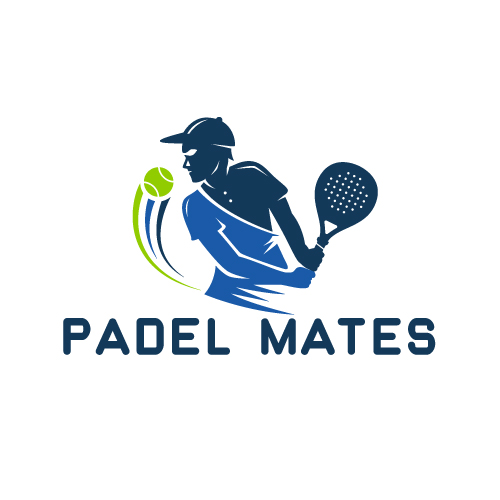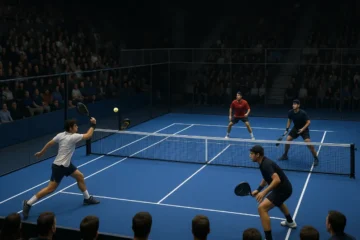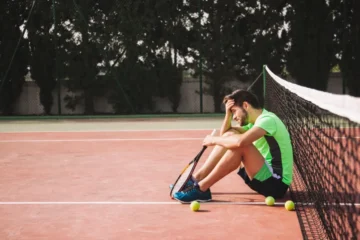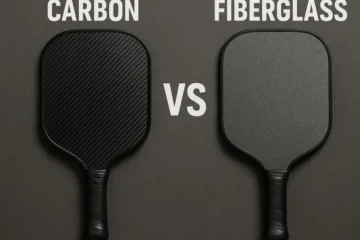Padel is one of the fastest-growing sports worldwide, blending the excitement of tennis with the strategic nuance of squash. But like any great sport, padel comes with its own vibrant slang—a colorful mix of technical terms, tactical jargon, and playful expressions that vary by country. Whether you’re a beginner learning the ropes or a seasoned player eager to up your game, understanding padel slang is essential. It not only improves communication on the court but also brings a sense of camaraderie with fellow enthusiasts.
In this article “Padel Slang Every Player Should Know”, we break down the most popular and widely used padel slang—from basic court terms to clever trash talk and regional expressions. Ready to speak padel like a pro? Let’s dive in!
1. Basic Padel Terms : Padel Slang Every Player Should Know
Court & Equipment
Pista (Court) – The main playing area in padel, usually enclosed by glass walls and metal mesh. Every rally begins and ends here.
Cristal (Glass) – The transparent glass walls used for rebounds. Players often use these to their advantage, bouncing the ball off for strategic plays.
Reja (Fence/Mesh) – The metallic grid, usually found along the sides and back of the court. A ball that hits the reja directly is typically considered out.
Paleta / Pala (Padel Racket) – The racket used in padel. Unlike tennis rackets, padel rackets are solid with holes and no strings. The term “pala” is more common in Spain.
Key Shots
Víbora (Viper) – A venomous shot played with topspin and side spin, often used as a hybrid between a bandeja and a smash. It curves awkwardly, making it tough to return.
Bandeja (Tray) – A controlled overhead shot resembling a soft smash. Often used defensively to maintain net position.
Chiquita (Little One) – A soft, short shot aimed just over the net. It forces opponents to move forward quickly, breaking their rhythm.
Gancho (Hook) – A trick shot, often played when the ball is behind you. The player swings the racket behind their back to keep the ball in play.
Globo (Lob) – A high, defensive shot used to push opponents away from the net and give the team time to reposition.
Gameplay Actions
Saqué (Serve) – The underhand serve used to start every point. Unlike tennis, padel serves must be below waist height.
Dejada (Drop Shot) – A short shot that barely clears the net, intended to catch the opponent off guard and unable to reach the ball in time.
Remate (Smash) – A powerful overhead shot aimed at ending the point. Often used when the ball bounces up high or after a lob.
Contrapared (Counter-wall) – A clever move where a player uses the opponent’s wall rebound to counterattack.
Also Read: The Art of the “Wow” Factor: Mastering Trick Shots in Padel
2. Gameplay & Strategy Slang : Padel Slang Every Player Should Know
Tactical Terms
¡Saque a la pared! (Serve to the wall!) – A strategic serve that hits the side wall after bouncing, making the return awkward and unpredictable.
Fondo (Deep shot) – Shots that land deep in the opponent’s court, typically used to force them into a defensive stance.
Cierre (Close-out) – A decisive move to approach the net aggressively and finish the point.
Trabajar la bola (Work the ball) – A patient and strategic rally play, meant to wear down opponents and wait for the right moment to strike.
Positioning & Communication
Cambio (Switch) – A quick shout between partners indicating they should switch sides due to a wide ball or unexpected positioning.
Mío / Tuyo (Mine / Yours) – Essential calls to avoid confusion over who takes the ball during fast-paced rallies.
Sube (Go up) – Instruction to your partner to move toward the net.
Baja (Go back) – A call telling your partner to retreat to the baseline, usually after a lob.
3. Fun & Informal Expressions : Padel Slang Every Player Should Know
Celebratory Phrases
¡Qué palo! (What a shot!) – A genuine expression of admiration after a powerful or beautiful play.
Se fue al cristal (It went to the glass) – Used when a shot bounces off the wall perfectly or as part of a well-executed strategy.
Me la has dejado en bandeja (You served it on a tray) – Used when an opponent gives you an easy ball to finish the point.
Pasa la bola (Pass the ball) – Encouraging your teammate to keep the rally going and work together.
Funny & Playful Terms
Paddle surf – When a player swings so wide or hard, it looks like they’re surfing instead of playing.
Efecto lavadora (Washing machine spin) – A crazy spin on the ball that makes it behave unpredictably, as if it’s been tossed in a washing machine.
Cazabobos (Trap shot) – A sneaky, deceptive shot that tricks the opponent into making a mistake.
4. Competitive & Trash-Talk Phrases : Padel Slang Every Player Should Know
Confident Taunts
Te como con papas (I’ll eat you with fries) – A humorous way to say you’re dominating the match.
No llega ni con taxi (Won’t reach it even with a taxi) – Used when an opponent is too slow to get to the ball.
Aprieta (Tighten up) – Telling your partner to focus, stay sharp, or hit harder in tense moments.
Regional Trash Talk
Spain:
“Esto es un paseo” (This is a walk in the park) – Implies the match is way too easy.
Mexico:
“Te la voy a enchilar” (I’m going to spice it up for you) – Playful warning that you’re about to turn up the heat.
Argentina:
“Le errás como a la economía” (You miss like the economy) – A witty jab at someone’s inconsistent play, referencing Argentina’s infamous economic woes.
5. Country-Specific Padel Slang : Padel Slang Every Player Should Know
Spain
Pala – Their go-to word for the padel racket.
Dar un repaso – To totally outplay or dominate your opponents.
Pecho (Chest) – Used when a ball accidentally hits a player’s chest or when laughing about an accidental block.
Mexico
Chingona – A killer shot, or a player showing outstanding skill. It’s a powerful, slangy compliment.
Atole – Refers to a weak, sluggish shot. Comes from a thick, slow-moving traditional drink.
Argentina
Bocha – A perfect shot, often one that bounces twice or hits an impossible angle.
Meter ficha – To take things seriously or start playing with real intent, like inserting a coin into a machine to get it going.
UK & International
Let’s padel! – A cheerful, casual way of inviting someone to play.
Wall wizard – A nickname for a player who’s brilliant at using the walls to their advantage, especially for rebounds.
Conclusion : Padel Slang Every Player Should Know
Mastering padel slang does more than just improve your communication on the court—it helps you become part of a global community of players who share a passion for this fast-paced, strategic game. From the technical brilliance of a “víbora” to the cheeky fun of saying “No llega ni con taxi,” these terms add richness and flavor to every match.
So next time you step onto the pista, bring not only your skills but also your slang. You’ll play smarter, bond faster with partners, and maybe even drop a “cazabobos” or two to catch your rivals off guard.
Now you’re talking padel. ¡Vamos!
FAQs: Padel Slang Every Player Should Know
What is padel slang?
Padel slang refers to informal terms, expressions, and phrases commonly used by players during games and practice. These can include names for shots (like “víbora”), strategies, court positioning, and even humorous or regional phrases. Understanding padel slang improves communication and adds to the fun of the sport.
Why is it important to learn padel slang?
Learning padel slang helps you understand the game more deeply, communicate effectively with your partner, and connect with the padel community—especially in countries where the sport is popular, like Spain, Argentina, and Mexico. It also helps you follow commentary or coaching more easily.
What does “víbora” mean in padel?
“Víbora” (Spanish for “viper”) is a high-level shot in padel that combines topspin with sidespin. It’s hit with a slicing motion and lands deep, curving away from the opponent, making it difficult to return.
What is a “bandeja” in padel?
A “bandeja” (tray) is a defensive overhead shot used to maintain position at the net. It looks like a smash but is slower and with more control, designed to keep opponents at the back of the court rather than end the point.
Are padel terms the same in all countries?
Not always. While many padel terms are derived from Spanish, different countries use their own slang. For example, a padel racket is called “pala” in Spain, but might be referred to as “paleta” in Latin America. Some countries also use humorous or culturally specific phrases.
What’s the difference between “globo” and “chiquita”?
A “globo” is a high, lob-style shot meant to push opponents away from the net. A “chiquita” is a soft, short shot that lands just past the net, used to surprise and force opponents to move forward quickly.
What does “¡Qué palo!” mean on the court?
“¡Qué palo!” translates roughly to “What a shot!” It’s a compliment used after an impressive play, especially a powerful or well-placed hit.
Is trash talk common in padel?
Yes, but it’s usually lighthearted and fun. Padel players often use playful trash talk to entertain and build camaraderie. Phrases like “Te como con papas” (“I’ll eat you with fries”) are meant to tease rather than offend.
What are some beginner-friendly padel terms to start with?
Start with basic terms like:
Pista – The court
Pala – The racket
Saqué – Serve
Globo – Lob
Remate – Smash
Cambio – Switch sides
These will help you follow the flow of play and communicate better with your partner.
Can I use English terms while playing padel internationally?
You can, but many players—especially in Spanish-speaking countries—will use native slang. Learning common Spanish padel slang will help you blend in and understand more during international matches or travel games.




